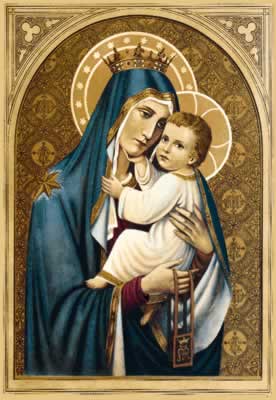I wrote the following when requested by my Carmelite group to write something about the history of Advent and my own brief reflection on it.
(Etymology: Latin adventus, a coming, approach, arrival.)
According to the General Norms for the Liturgical Year and the Calendar
Advent has a twofold character: as a season to prepare for Christmas when Christ’s first coming to us is remembered; as a season when that remembrance directs the mind and heart to await Christ’s Second Coming at the end of time. Advent is thus a period for devout and joyful expectation.
Officially Advent is not a penitential season according to Canon law. Because the liturgical color for Advent is violet, like the color of Lent, people might think that it is.
First, I will give a brief history of the season of Advent. Advent’s earliest form started in France and developed parallel to Lenten disciplines with periods of fasting. Then, similar traditions began to be acquired elsewhere. A liturgical season in preparation for Christmas did not fully appear in Rome until the sixth century, emphasizing preparation for Christmas over a penitential aspect. Over the next four centuries, the liturgy season developed as to only having four Sundays and being set as the start of the Church year.
My reflection on this season is to think of both expectation and God’s hiddenness. We are blessed with knowing the spoiler alert of the Incarnation. That we lose the surprise, shock, and wonder that God would come to us as a baby. Our Advent season condenses the time from the protoevangelium in Genesis 3:15 of the coming Messiah and through all of Israel’s history until a child is born unto us. That is a lot to draw on and to pack in.
All those generations that lived and died trusting in God’s promise. All those that awaited the day amidst the turmoil of the world. The internal and external battles. Yet when the promise of that day arrived, God was hidden in a manger known to so few. A hiddenness that could only be revealed by humility. Mary’s fiat, Joseph’s justness and faithfulness, those men of a humble profession being shepherds. The world went on around them as if nothing had changed, yet everything had.
We still live our lives, forgetting this basic fact that Jesus had come to save every one of us.
Jesus would later tell his disciples:
“Blessed are the eyes that see what you see! For I tell you that many prophets and kings desired to see what you see, and did not see it, and to hear what you hear, and did not hear it.”
Are we silent enough to be able to pray with loving attentiveness to be able to see? To be able to hear that still small voice. To use our time for preparation in contemplating on the wonder of the Incarnation? Or do we lose ourselves in busyness?
God keeps coming to us in hiddenness. Through the Eucharist, the indwelling of the Holy Spirit, through the Mass, all the graces he would shower on us.
How do we shape our expectations? Do we limit what God could do like those who saw the coming Messiah as a political power in an earthly kingdom? But, on the other hand, are we willing to let him surprise us with the gifts he wants to give us? How much detachment, humility, and love have we cultivated to allow him to do this?
I am preaching to myself here, and I am not pleased with the answers that come to mind. The point of expectation is knowing we are not yet at the moment we want to be. It is a gift to know this about ourselves and to know who is the fulfillment of our desires.
“I see clearly that if we expect to please Him and receive an abundance of His graces, God desires that these graces must come to us from the hands of Christ, through His most Sacred Humanity, in which God takes delight.” St. Teresa of Jesus

